Grilled food is one of life’s simple pleasures. It’s healthier for you, offers a diverse range of foods and recipes to try, provides the opportunity to cook outside in nature and just plain tastes great! In honor of National Grilling Month this July, we’re delving into five of these facts and providing you corresponding grilling recipes from some of Belgard’s partners. We hope you spend time this summer whipping up these tasty treats straight off your own backyard grill.
Cut the Fat
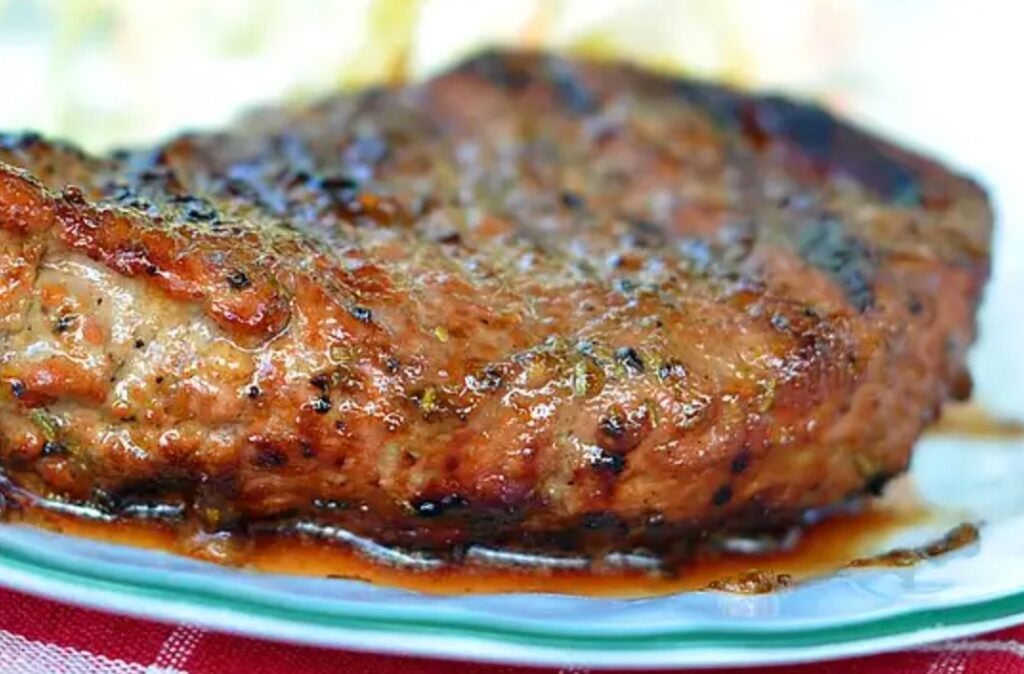
Unlike frying or cooking with oil or butter on the stove, grilled food does not involve using breaded coatings or excess fat to prepare food. With cuts of meat like beef and pork, the heat from the grill melts some of the fat ultimately rendering the cut less fatty.
Recipe: Here’s a delicious Grilled Delmonico Steak dish from allrecipes that becomes a little leaner on the grill versus cooking in the oven or in a cast iron skillet.
Preserve Nutrients
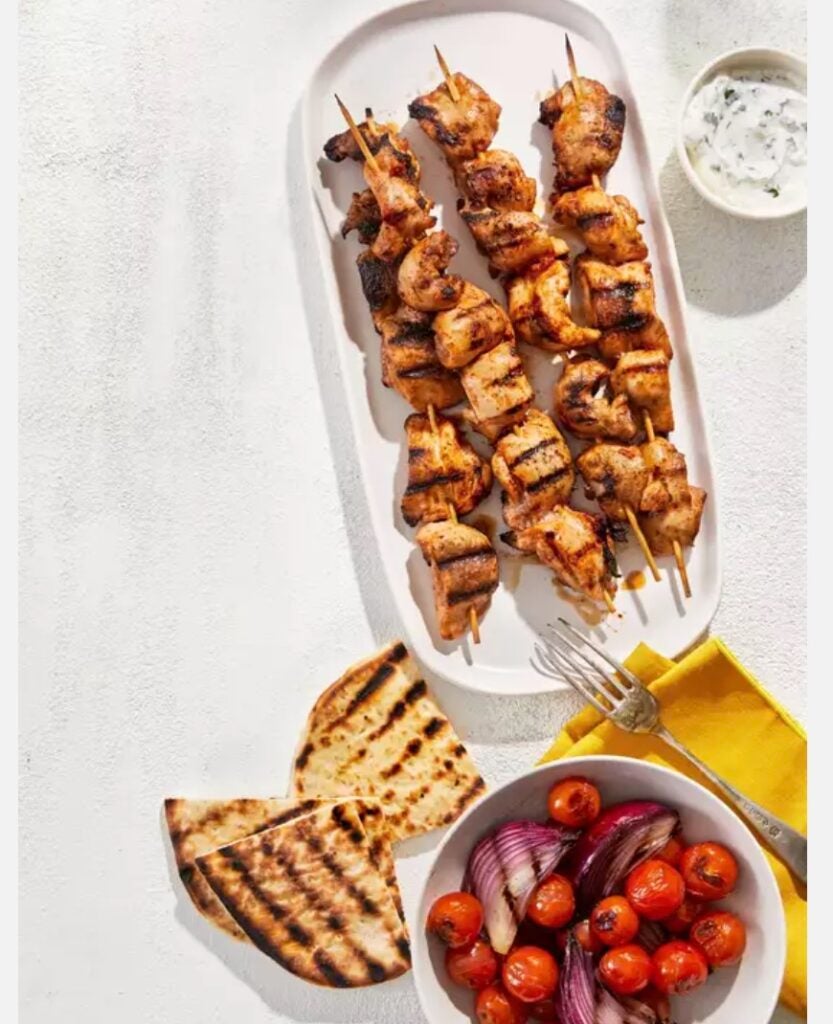
Grilling is a healthier way of cooking meat and vegetables as it preserves the food’s nutrients. For meat, thiamine (Vitamin B1) and riboflavin (Vitamin B2) are retained. Thiamine in the body helps carbohydrates break down into energy and prevents certain diseases while Riboflavin helps with energy production. Grilling fresh, seasonal vegetables is healthier than frozen and canned ones. The vegetables cook faster, maintaining vitamins and minerals to make sure you retain more of their nutrients.
Recipe: This Southern Living recipe for Spiced Chicken and Veggie Kabobs with Grilled Pita Bread combines vegetables and chicken for a flavorful, all-in-one dish that is packed with nutrients.
Ditch the Butter
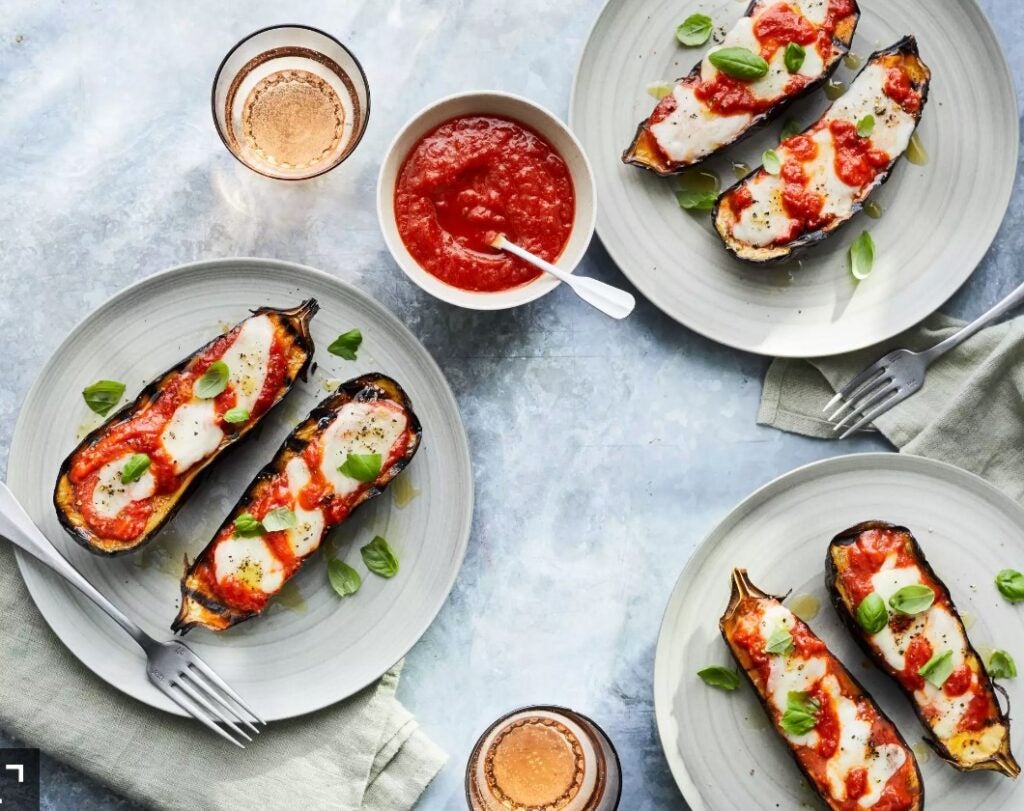
If you use butter or vegetable oil when cooking inside, try grilling with olive oil, which is a healthier kind of fat. Olive oil is very high in monosaturated fats and contains a modest amount of vitamins E and K. Extra virgin olive oil is also loaded with antioxidants, some of which have powerful health benefits such as fighting inflammation and reducing blood pressure. A little light touch of olive oil along with seasoning (salt, pepper, garlic, herbs, etc.) can add flavor to your grilling item of choice while adding further health benefits.
Recipe: For a healthier take on eggplant, check out this recipe for Grilled Baby Eggplant Parmesan that incorporates olive oil. It’s soooo easy, yet soooo tasty.
Enhance Flavor
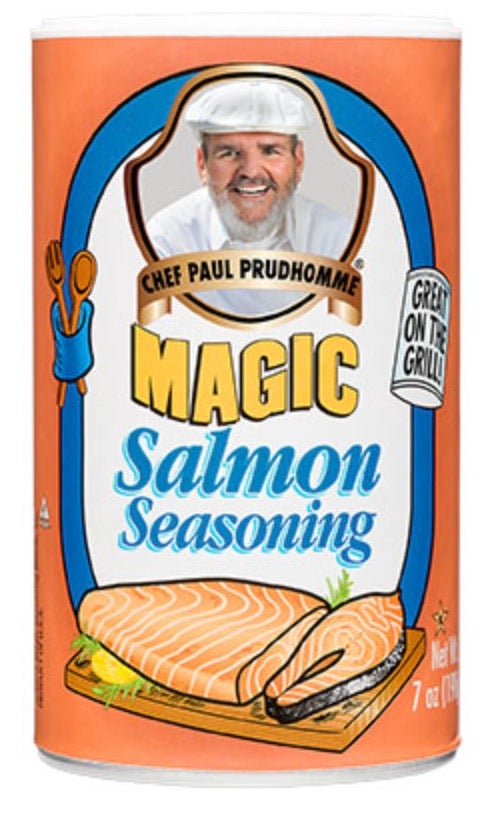
Food from the grill flat out tastes better. Meats become more savory, charcoal adds a hint of smoky flavor and proteins are broken down into amino acids, which then react with the carbohydrates present producing the scent and satisfying taste we crave. Grilled vegetables become caramelized, which enhances their sweetness. Adding additional seasonings, marinades or injecting can help heighten flavor profiles – you’ll never get bored eating the same thing.
Recipe: This is much less a recipe and more of a simple technique that will result in some of the best grilled salmon you’ve ever tasted. Take a salmon steak and place it skin side down on a sheet of aluminum foil. Sprinkle liberally with Chef Paul Prudhomme’s Salmon Magic seasoning and then grill at 350 – 400 degrees for about 10 – 15 minutes depending upon how you like your salmon cooked. It’s done when it firms up and turns a little white and less orange. Be careful not to overcook and dry it out.
Hot Topic: Are Grilled Meats Cancerous…the Reality
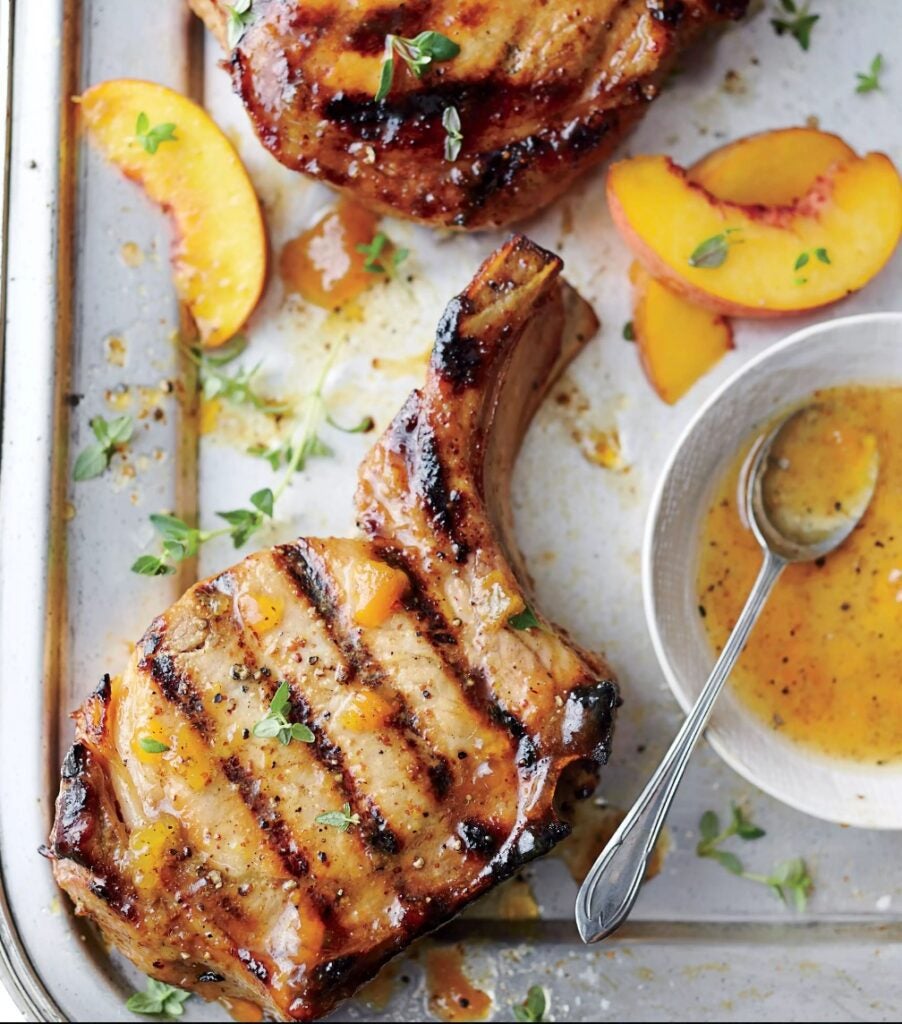
You may have heard in recent years that eating grilled meats can increase your risk of cancer, which really needs clarification. The worry stems from the discovery that grilled meats can form two chemicals—heterocyclic amines (HCAs) and polycyclic aromatic hydrocarbons (PAHs)—which have been shown in lab studies to alter DNA in a way that increases the odds of developing various forms of the disease. HCAs are found in the char on meats cooked over an open flame. High temps create a reaction between amino acids, sugars and creatine in muscle. PAHs occur when fat drippings fall onto hot coals or heating elements and create smoke—which then rises up, causing the chemical to cling to your food. However, the National Cancer Institute points out that human studies have been mixed, and no definitive link between exposure to PAHs and HCAs from grilled meat and cancer has been established. That’s in part because the amount of these chemicals you might consume from a piece of barbecued chicken or seared steak is “1,000-fold lower than what animals were exposed to in lab studies.” Ultimately, while there is a slight risk, it is extremely low. If you are concerned, here are a few ways to proactively reduce PAHs and HCAs.
- Buy leaner cuts of meats and/or grill more vegetables.
- Marinating meats before grilling is one of the best ways to reduce the formation of HCAs by as much as 96% according to the American Institute for Cancer Research.
- Raising the grill grates farther above the flames, if you can, also reduces the formation of these chemicals.
- Continually rotating the meat limits heat exposure and may decrease HCA formation, as well, according to the NCI.
Recipe: Here are five delicious Marinade Recipes for Pork that will add flavor to your chops and help reduce HCAs.


